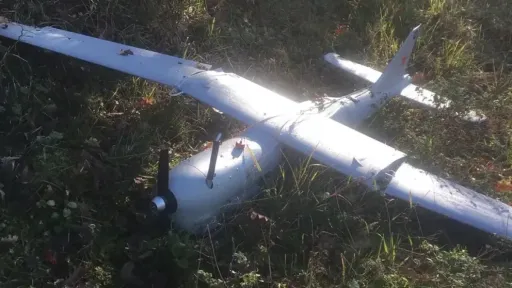As polls open in Germany on Sunday, Chancellor Angela Merkel is expected to cruise to victory in elections but also to face the breakthrough into parliament of far-right populists for the first time in the country's post-war history.
Voting started at 0600 GMT in Europe's biggest economy and exit polls are announced at 1600 GMT, with few expecting surprises given Merkel's double-digit poll lead over her party’s – the Christian Democratic Union – closest rivals, the Social Democratic Party (SPD).
But the race for third place is wide open, and in Germany's coalition system the smaller parties could tip the balance of power.
Mutti Merkel and the far-right
Merkel was born Angela Dorothea Kasner in 1954 in the port city of Hamburg.
Weeks later her father, a leftist Lutheran clergyman, moved the family to a small town in the communist East at a time when most people were headed the other way.
Biographers say life in a police state taught Merkel to hide her true thoughts behind a poker face.
Merkel has been derided as Europe's "austerity queen", cheered as a saviour by refugees and hailed as the new "leader of the free world".
But as the pastor's daughter raised behind the Iron Curtain heads toward a likely fourth term at the helm of Europe's biggest economy, many Germans simply call her the "eternal chancellor".
"Mutti" (Mummy) Merkel, with her pragmatic, modest and reassuringly bland style, has perfected the art of staying in power in a wealthy, ageing nation that tends to favour continuity over change.
For months, Merkel has been the favourite over her centre-left rival, SPD’s Martin Schulz and looked set to win another term and match the 16-year reign of her mentor Helmut Kohl.
To many in the West, a fourth Merkel victory will come as a relief in a turbulent world, with hopes she will serve as a calm-headed counterweight to US President Donald Trump and Russia’s Vladimir Putin and as the key EU ally to reformist French President Emmanuel Macron.
Rise of the far-right
But the election is also expected to mark a milestone for the four-year-old Alternative for Germany (AfD) which, like right-wing populists elsewhere, rails against migrants, Muslims and mainstream parties.
It has been polling at 11 to 13 percent and could become Germany’s third-strongest party, driven by anger over the influx of one million migrants and refugees, many from war-torn Syria, Iraq and Afghanistan, since 2015.
“The AfD’s entry into the Bundestag marks an epochal step forward for the far right,” said Joerg Forbrig of think-tank the German Marshall Fund of the United States.
By entering parliament, he said, “The xenophobic, revisionist and anti-European political force” will have heightened visibility and access to campaign finance, dozens of offices and hundreds of staff.
“Stress test” for democracy
After a “vicious” campaign, in which the AfD demanded an end to German guilt over two world wars, Forbig warned that “German democracy is about to face its biggest stress test ever”.
At Merkel’s final major stump speech Friday in the southern city of Munich, right-wing activists tried to drown her out with whistles and vuvuzelas and chants of “get lost”.
But the 63-year-old refused to be derailed from her stability-and-prosperity mantra, telling the crowd that “the future of Germany will definitely not be built with whistles and hollers”.
Schulz, for his part, recalled with pride the SPD’s history of resisting the Nazi regime and told a Berlin rally that “this Alternative for Germany is no alternative. They are a shame for our nation.”
Aside from the populist noise, the past two months of campaigning have been widely-criticised as lacklustre, with few hot-button issues dividing the main contenders.
The more outspoken Schulz, former president of the European Parliament, has told voters to reject Merkel’s “sleeping-pill politics” and vote against “another four years of stagnation and lethargy”.
“Bring home the bacon”
In greying Germany, more than half of the 61 million voters are aged 52 or older, and especially Merkel’s conservatives have pitched a low-key and reassuring message of stability and prosperity.
On Saturday, Merkel – who has signalled she was running again mainly out of a sense of duty – urged her supporters to cast their ballots with a folksy call to “bring home the bacon”.
For the past term, Merkel’s CDU has ruled with the SPD as its junior partner in a “grand coalition”, marked by broad agreement on major topics, from foreign policy to migration.
Governing in Merkel’s shadow has cost the SPD voter support, and polls give it 21 to 22 percent compared to 34 to 36 percent for Merkel’s conservative bloc, which also includes the Bavarian CSU.
Looking at the surveys, many rank-and-file SPD members believe the traditional working-class party would benefit from a stint in opposition to rekindle its fighting spirit.
This would leave the presumed winner Merkel in need of new coalition partners – possibly the liberal and pro-business Free Democrats, who are hoping for a comeback after crashing out of parliament four years ago.
Another potential partner would be the ecologist and left-leaning Greens party, which, however, starkly differs with the FDP on issues from climate change to migration policy.
























